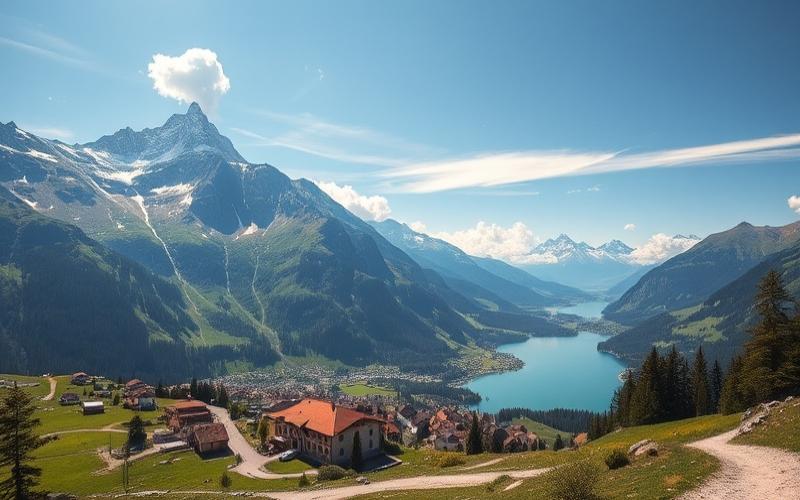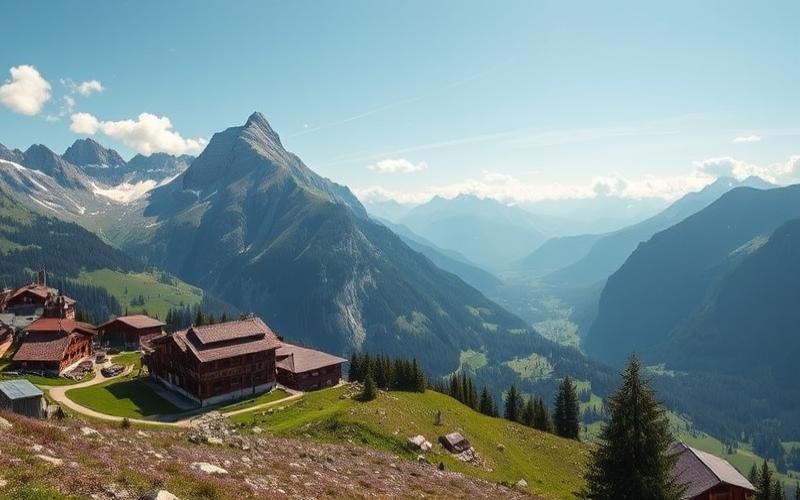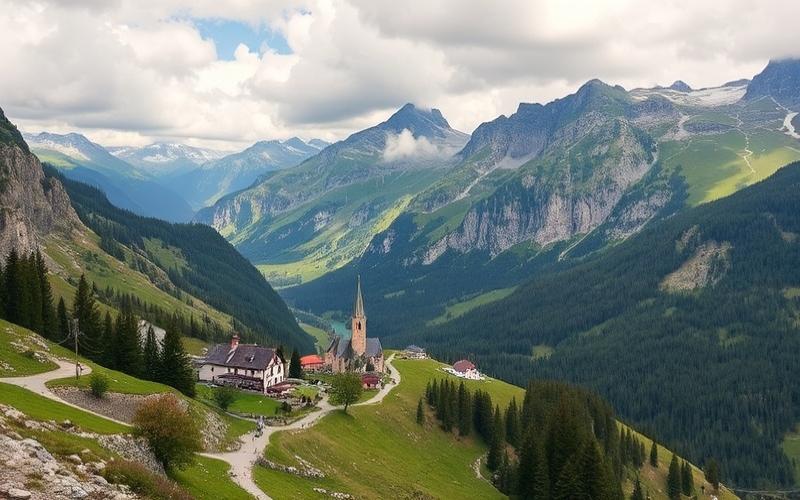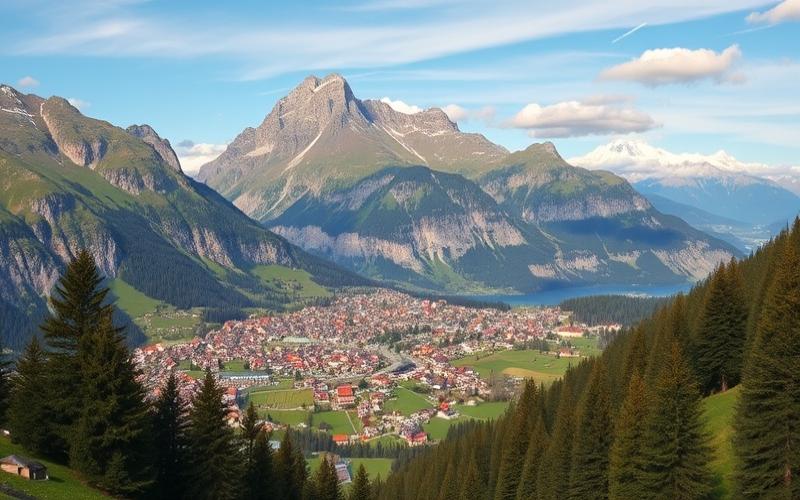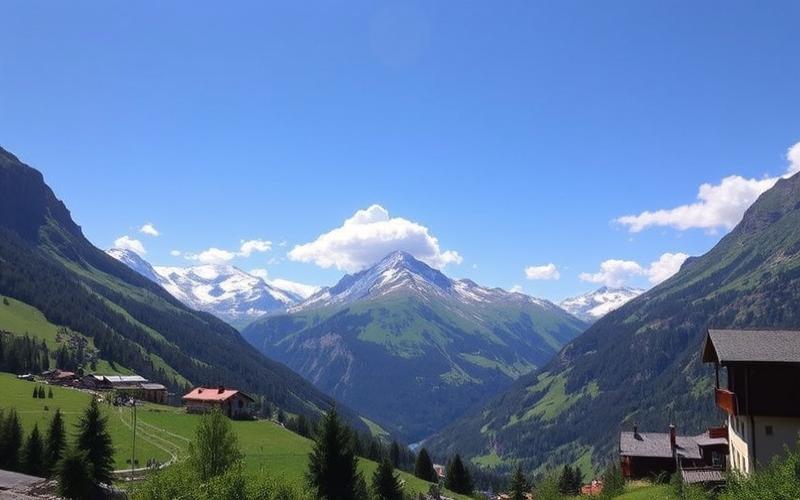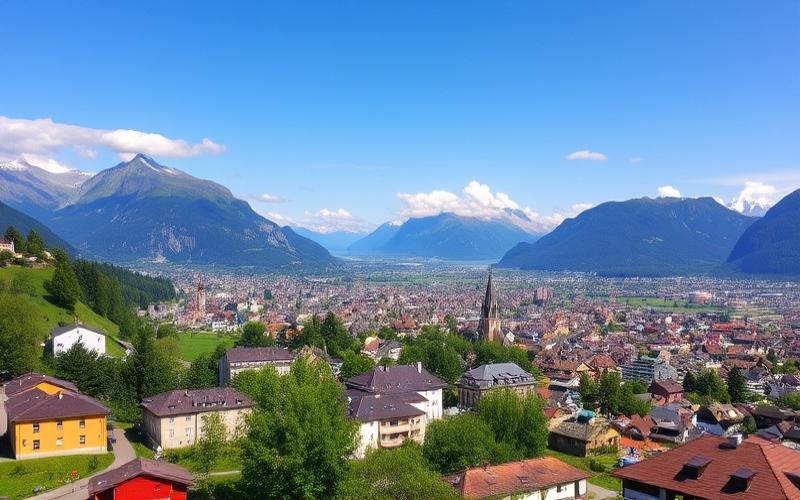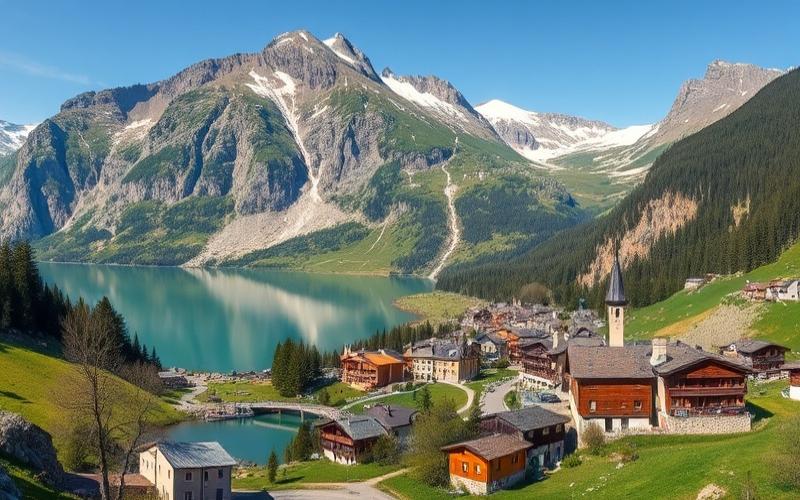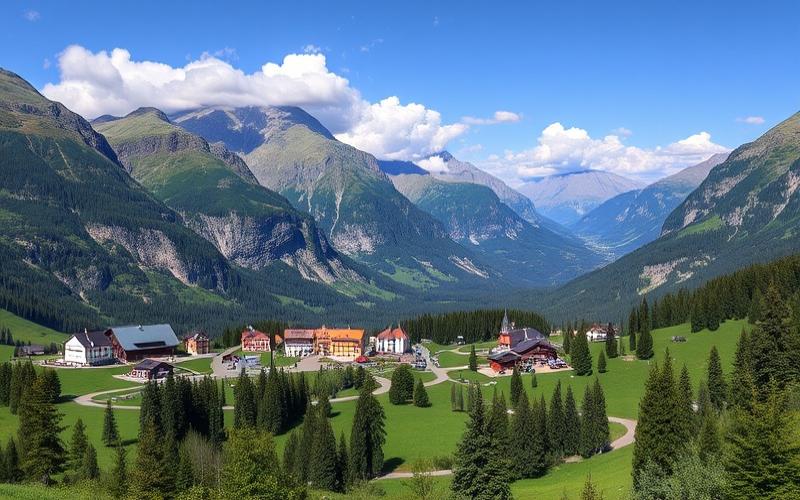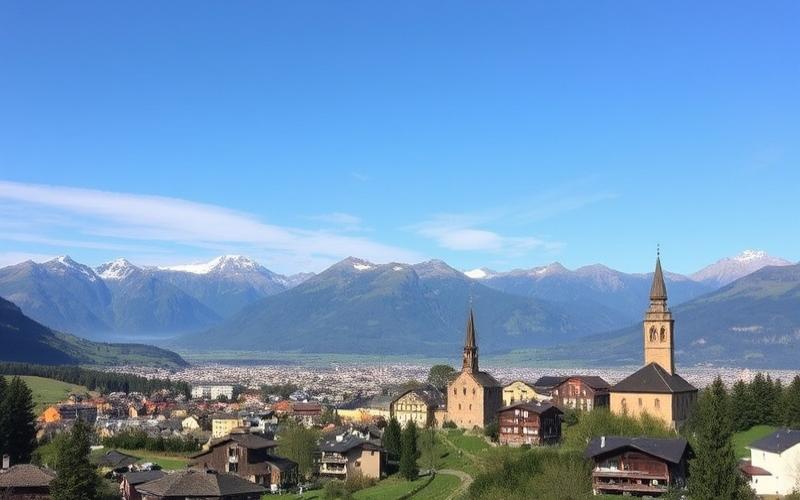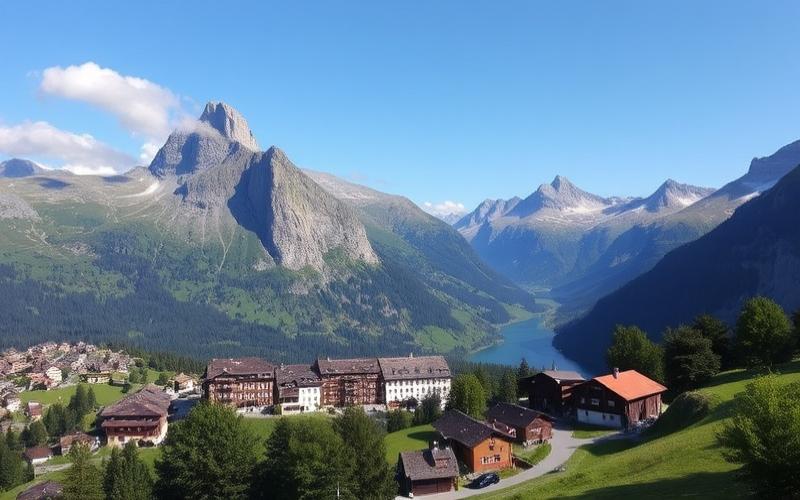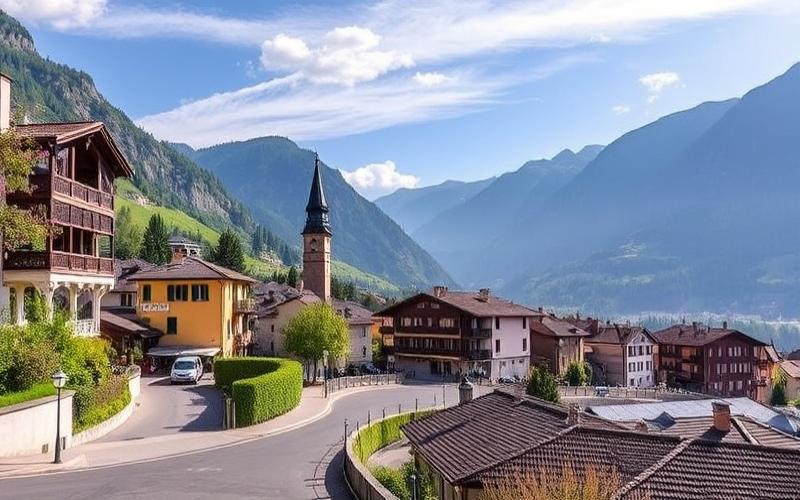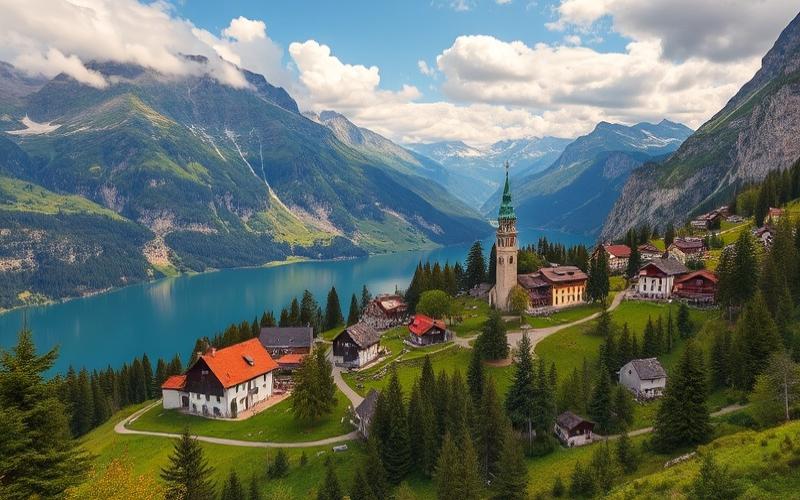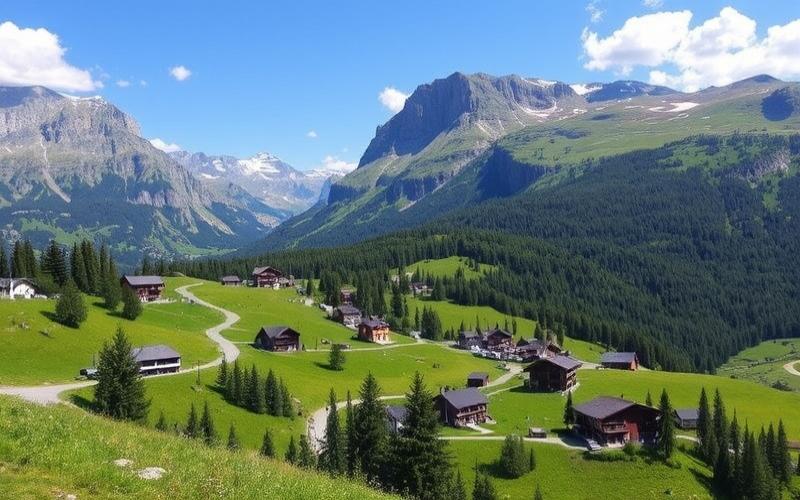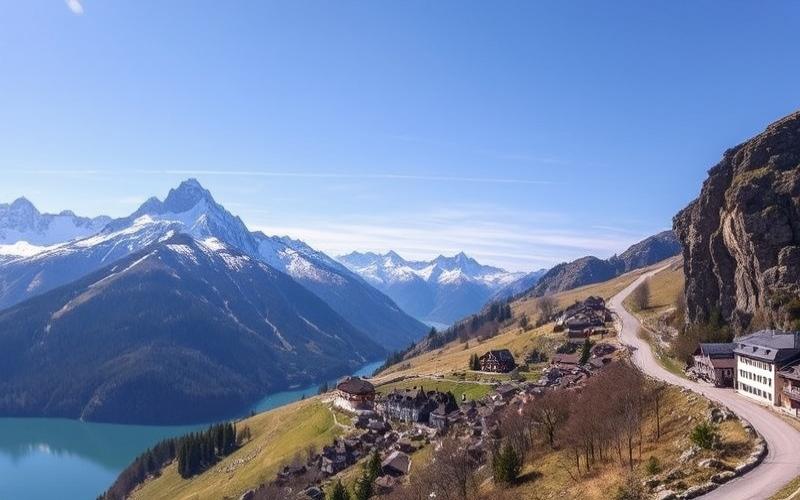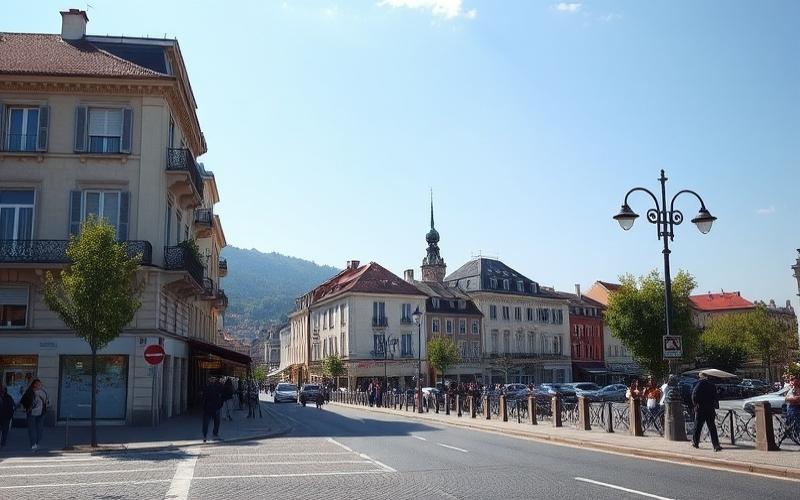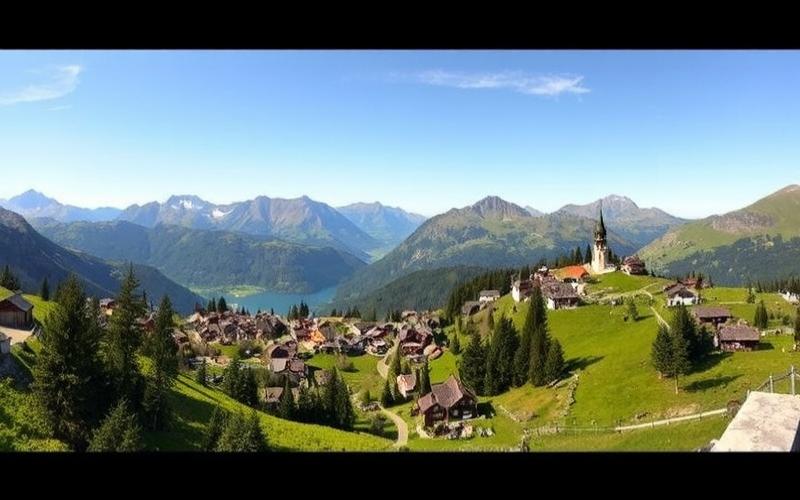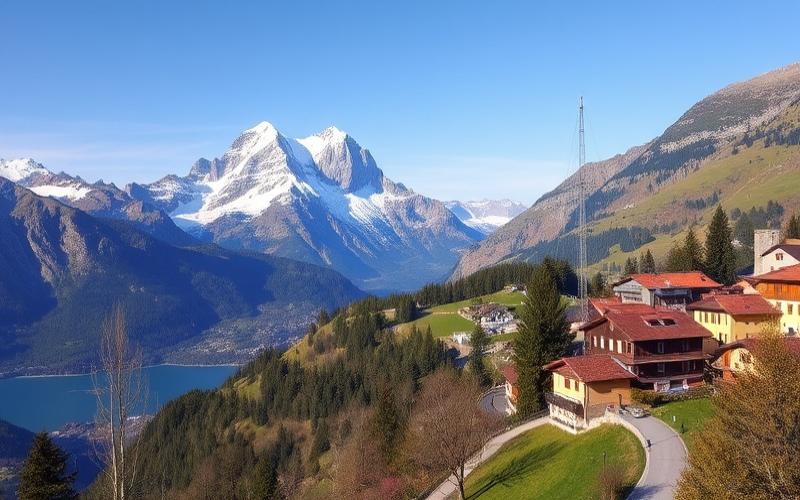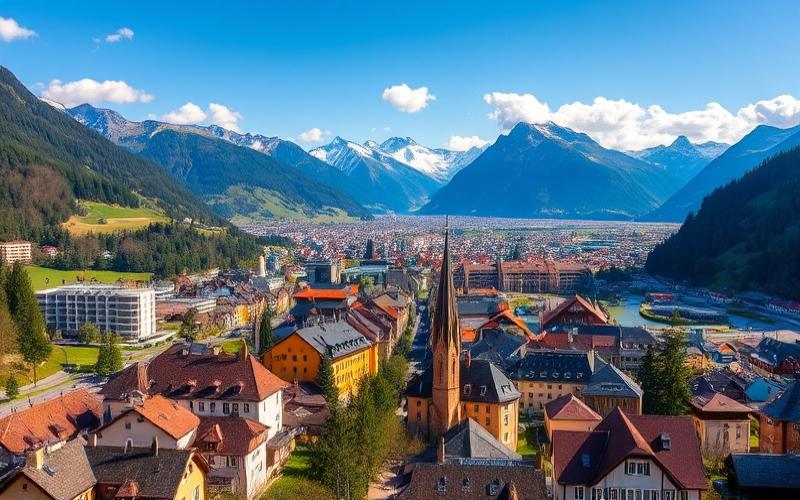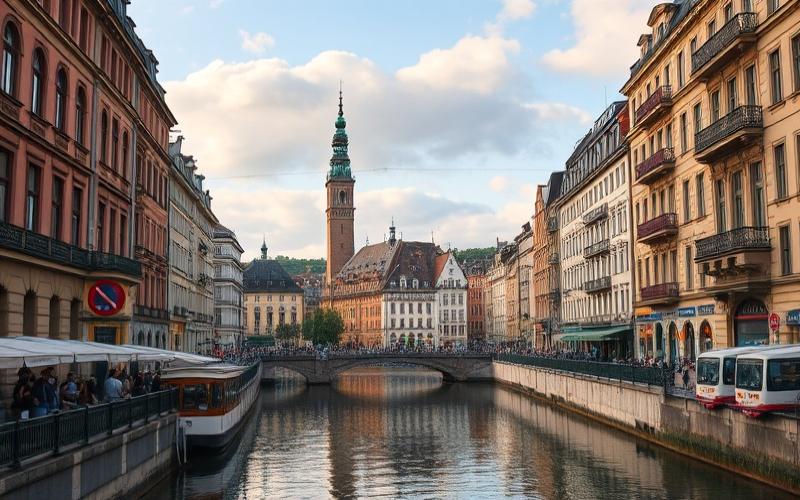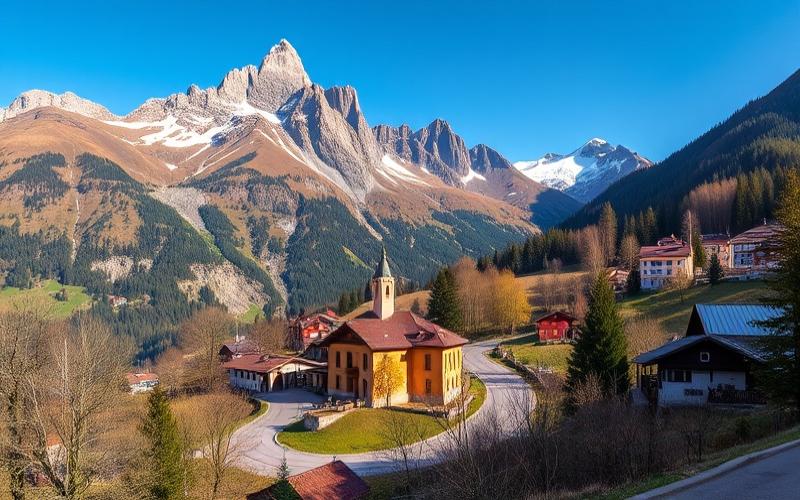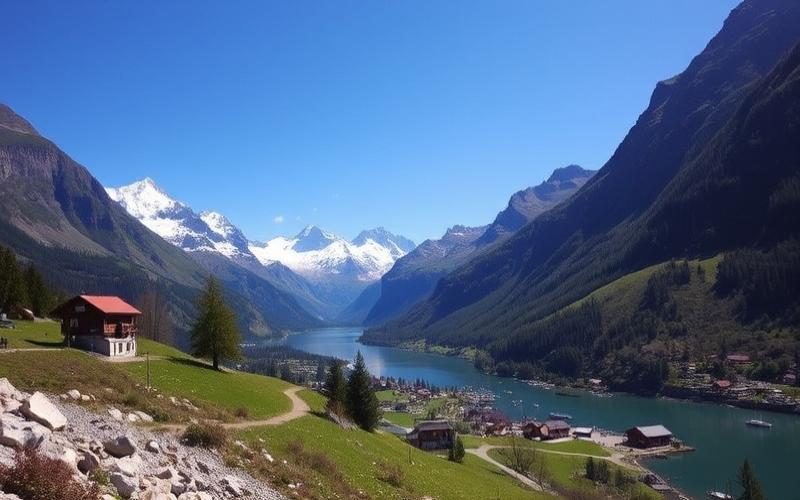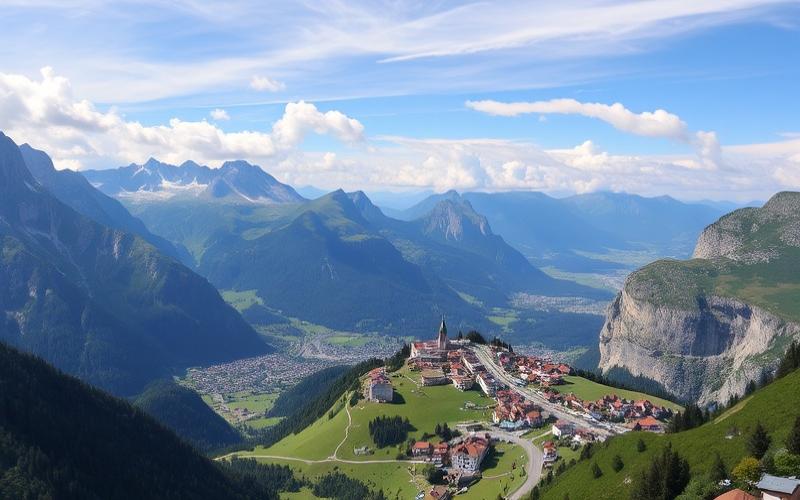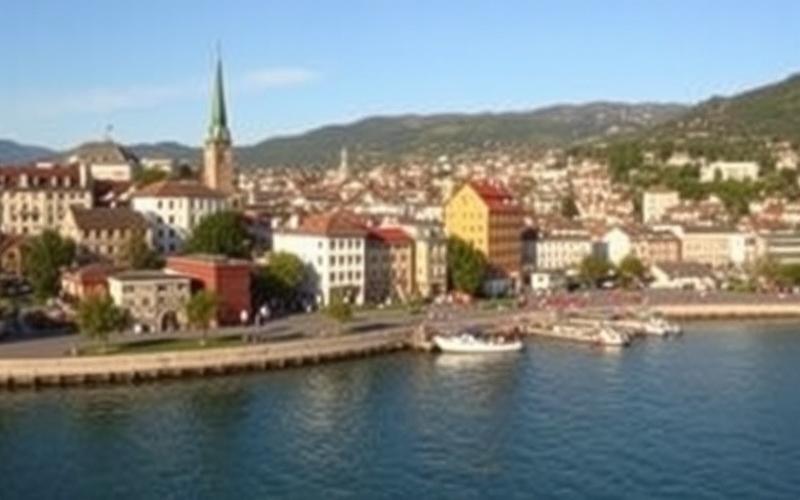
 Published on and written by Cyril Jarnias
Published on and written by Cyril Jarnias
Switzerland, renowned for its economic and political stability, offers numerous real estate investment opportunities. Whether you’re a local or international investor, understanding Swiss market dynamics is essential for making sound investments. In this article, we’ll explore the most promising neighborhoods in major Swiss cities and analyze growth prospects for the coming years.
Zurich: The Financial Heart of Switzerland
Zurich, Switzerland’s largest city, remains a safe bet for real estate investors. Its status as an international financial center and exceptional quality of life make it a prime destination for professionals worldwide.
Kreis 5 (District 5): The Trendy Neighborhood in Transformation
Once an industrial area, Kreis 5 has transformed into a dynamic and creative neighborhood. Converted warehouses now stand alongside modern buildings and co-working spaces. Rental demand is strong, driven by a young and trendy population.
Seefeld: Elegance by the Lake
Located on the shores of Lake Zurich, Seefeld combines historic charm with modernity. This upscale residential neighborhood attracts affluent clients, particularly expatriates working in the financial sector. Real estate prices are high but offer interesting long-term appreciation potential.
Oerlikon: The Future Innovation Hub
Oerlikon, north of Zurich, is undergoing major transformation. The development of the Neu-Oerlikon neighborhood, with its offices, housing, and green spaces, makes it a promising investment area. Proximity to the airport and major technology companies enhances its appeal.
Good to Know:
In Zurich, real estate prices increased by an average of 5.2% in 2024, with peaks of 7% in sought-after neighborhoods like Seefeld. Experts predict continued, though more moderate, growth for 2025 and beyond.
Geneva: International Appeal
Switzerland’s second city, Geneva enjoys a global reputation thanks to its international organizations and exceptional living environment. The Geneva real estate market, though highly competitive, offers interesting opportunities for savvy investors.
Eaux-Vives: Between Lake and Urban Dynamism
The Eaux-Vives neighborhood is undergoing spectacular renewal. The opening of the Eaux-Vives station and development of the public beach have significantly increased this area’s attractiveness. Investments in mid to high-end apartments are particularly relevant here.
Plainpalais: The Student Heart
Plainpalais, with its proximity to the University of Geneva, remains a wise choice for investors targeting the student rental market. Demand is constant and rental yields attractive, particularly for small units and shared accommodations.
Le Grand-Saconnex: The Future at the City’s Edge
Le Grand-Saconnex, bordering the international airport, is experiencing significant development. The “Quartier de l’Étang” project, which plans to create 1,000 homes and 2,500 jobs, offers promising investment prospects. Proximity to international organizations makes it popular among expatriates.
Good to Know:
The Geneva real estate market saw price increases of 3.8% in 2024. Outlying neighborhoods like Le Grand-Saconnex recorded the highest growth, up to 6% for some properties.
Lausanne: Between Lake and Innovation
Olympic capital and dynamic university city, Lausanne is attracting more and more investors. Its real estate market, less tight than Geneva’s, offers interesting opportunities, particularly in developing neighborhoods.
Flon District: The Creative Heart of the City
Formerly an industrial area, the Flon has transformed into an essential cultural and commercial hub. Investments in lofts or modern apartments are particularly profitable here, with strong rental demand from young professionals and students.
Écublens: The Expanding University Hub
Écublens, home to the EPFL and UNIL campuses, is experiencing sustained development. Investments in student housing or apartments for young researchers offer attractive and stable returns.
Renens: The New Urban Frontier
Renens, undergoing transformation, is attracting increasing investor attention. The “Renens Gare” project, which aims to create a new mixed neighborhood around the train station, offers investment opportunities in new properties at still affordable prices.
Good to Know:
In Lausanne, real estate prices increased by 4.5% in 2024. Outlying neighborhoods like Renens saw the highest increases, up to 7% for some new properties.
Basel: The Thriving Tri-National City
Basel, Switzerland’s third city, benefits from a strategic position bordering Germany and France. Its thriving pharmaceutical industry and status as a cultural hub make it an attractive destination for real estate investors.
Kleinbasel: The Rapidly Gentrifying Neighborhood
Located on the right bank of the Rhine, Kleinbasel is undergoing rapid transformation. Once a working-class neighborhood, it now attracts a young and creative population. Investments in properties needing renovation or modern apartments offer good appreciation potential.
Novartis Campus: The Future of Innovation
The neighborhood around the Novartis campus is developing rapidly. Investments in upscale housing or offices near this global innovation hub can prove very profitable long-term.
Saint-Louis (France): The Cross-Border Alternative
Although located in France, the city of Saint-Louis, just minutes from Basel, is attracting more Swiss investors. Prices are significantly lower than in Basel, offering attractive rental yields, particularly among cross-border workers.
Good to Know:
The Basel real estate market saw price increases of 3.5% in 2024. Neighborhoods near the Rhine and Novartis campus recorded the highest growth, up to 5% for some luxury properties.
Growth Prospects: What Trends for 2025 and Beyond?
Swiss real estate market experts agree on several trends that should shape the sector in coming years:
Price Stability in City Centers
In central neighborhoods of major cities like Zurich, Geneva, or Basel, prices should stabilize in 2025. Limited available land and strict construction regulations constrain supply, maintaining prices at high levels.
Sustained Growth in Outlying Areas
Suburban areas and secondary cities should experience more dynamic growth. Improved transportation infrastructure and the telecommuting trend make these areas more attractive to buyers and renters.
- Predicted price increases of 3-5% in Zurich and Geneva suburbs
- Expected growth of 4-6% in medium-sized cities like Winterthur, Fribourg, or Neuchâtel
Rise of Sustainable Neighborhoods
Real estate projects incorporating sustainability criteria (energy efficiency, eco-friendly materials, green spaces) should experience strong demand. Investors are increasingly turning to these properties, anticipating better long-term valuation.
Market Digitalization
Growing adoption of technology in the real estate sector (virtual tours, electronic signatures, smart building management) should facilitate transactions and improve rental management, making real estate investment more accessible and efficient.
Good to Know:
According to UBS forecasts, the Swiss real estate market should experience average growth of 3.8% in 2025, with significant disparities between regions and property types.
Winning Investment Strategies for 2025
To make the most of the Swiss real estate market in 2025, here are some strategies to consider:
Geographic Diversification
Don’t limit yourself to major cities. Medium-sized cities and suburban areas often offer better return and appreciation opportunities.
Focus on Transforming Neighborhoods
Identify areas benefiting from urban renewal projects or infrastructure improvements. These neighborhoods typically offer good medium-term appreciation potential.
Investment in Sustainable Real Estate
Prioritize properties meeting the strictest environmental standards. Not only are they more attractive to tenants, but they often benefit from tax advantages.
Shared Housing and Student Accommodations
In university cities, investing in properties suitable for shared housing or specifically designed for students can offer above-average rental yields.
Technological Monitoring
Stay informed about innovations in the PropTech sector. Using data analysis tools and smart rental management can significantly improve your investment profitability.
Good to Know:
Experts recommend a long-term investment approach in the Swiss market, with a horizon of at least 10 years to maximize returns and fully benefit from potential appreciation.
Conclusion: A Stable Market Offering Targeted Opportunities
The Swiss real estate market, renowned for its stability, continues to offer interesting opportunities for savvy investors. While major cities like Zurich and Geneva remain safe bets, investors benefit from broadening their horizons to developing areas or thriving secondary cities.
The key to success lies in thorough analysis of local trends, wise diversification, and particular attention to societal and technological developments shaping the market. By adopting a strategic approach and relying on local expertise, investors can leverage the numerous opportunities offered by the Swiss real estate market in 2025 and beyond.
Disclaimer: The information provided on this website is for informational purposes only and does not constitute financial, legal, or professional advice. We encourage you to consult qualified experts before making any investment, real estate, or expatriation decisions. Although we strive to maintain up-to-date and accurate information, we do not guarantee the completeness, accuracy, or timeliness of the proposed content. As investment and expatriation involve risks, we disclaim any liability for potential losses or damages arising from the use of this site. Your use of this site confirms your acceptance of these terms and your understanding of the associated risks.


